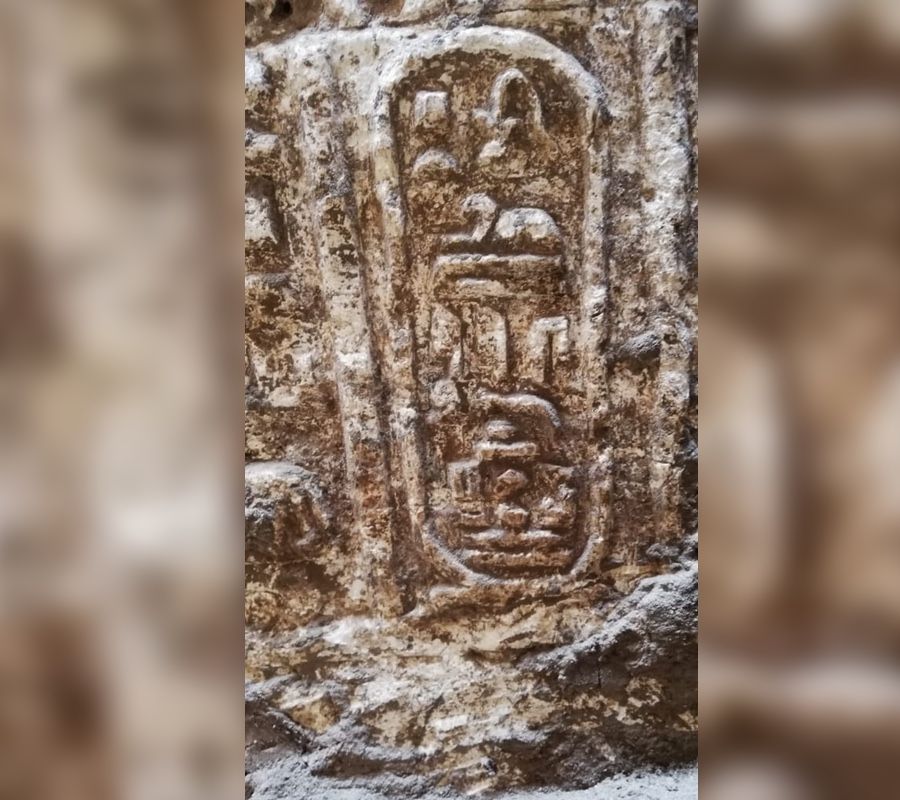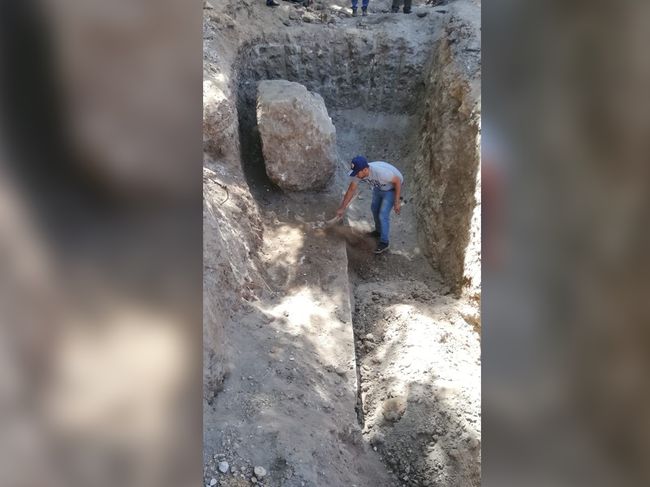Ancient Egyptian Temple from Reign of King Ptolemy IV Unearthed Along Nile River
By Stephanie Pappas - Live Science Contributor 9 hours ago

Excavations for a sewer system inadvertently unearthed a 2,200-year-old temple in Egypt. (Image: © Egypt Ministry of Antiquities)
Construction workers digging for sewer lines in the Egpytian city of Tama instead unearthed something incredible: an elaborately carved, 2,200-year-old temple from the era of King Ptolemy IV.
According to the country's Ministry of Antiquities, construction was stopped and archaeologists were called in to explore the find. So far, the team has discovered an east-west wall, a north-south wall and the southwestern corner of the temple, which is decorated with carvings of the Egpytian god Hapi, the god of fertility and of annual Nile River flooding, which enabled agriculture to flourish in the region in ancient Egypt.
These carvings show Hapi carrying offerings while surrounded by birds and other animals. Fragments of text mention Ptolemy IV, the fourth pharaoh of Egypt's Ptolemaic dynasty. The Ptolemies were Macedonian Greeks who ruled in Egypt from 305 B.C. to 30 B.C., often taking on the royal and religious symbols of earlier, homegrown Egyptian rulers. (The famous Cleopatra, who ruled Egypt from 51 B.C. to 30 B.C., was the last of the Ptolemies.)

The team has discovered an east-west wall, a north-south wall and the southwestern corner of the temple.
(Image credit: Egypt Ministry of Antiquities)
The find was made in the city of Tama, just north of Sohag, Egypt, on the Nile's western bank. A region of the modern city called Kom Shaqao sits on what was once the capital of Upper Egypt's 10th district. In the past, that settlement was known as Wajit, according to the Ministry of Antiquities.
More:
https://www.livescience.com/ptolemy-iv-temple-ancient-egypt.html

